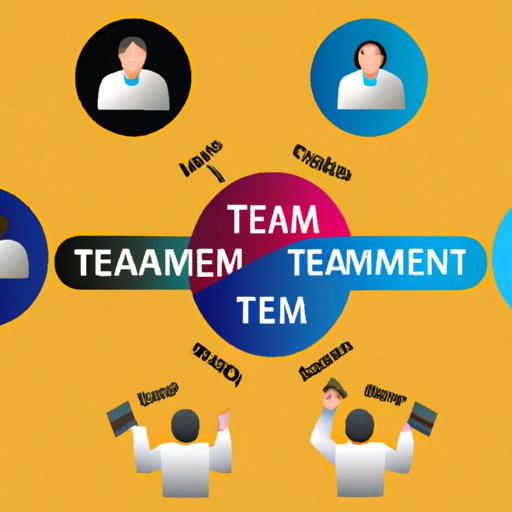Introduction
Effective teams are integral for any successful organization. Team leaders must be able to foster collaboration and provide direction in order to ensure that the team meets its objectives. This article will explore the key components of leading an effective team, from establishing clear roles and responsibilities to celebrating successes.

Establish Clear Roles and Responsibilities
One of the most important aspects of leading an effective team is assigning specific tasks to each team member. By assigning individual roles and responsibilities, team members are able to focus their efforts on specific objectives. It is also important to clarify expectations and set deadlines so that team members understand what is expected of them.
Foster Open Communication
In order for teams to work together effectively, it is essential to create an environment of trust and openness. This can be done by encouraging dialogue between team members and creating opportunities for them to share their ideas and opinions. Additionally, team leaders should be available to answer questions and address concerns.
Encourage Collaboration
Team success is dependent upon collaboration among team members. When making decisions, it is important to involve all team members in the process. This allows for different perspectives to be taken into account and can help to ensure that the best possible outcome is achieved. Additionally, team leaders should recognize and appreciate contributions made by each team member.
Set Reasonable Goals
Setting reasonable goals is critical for any team. Team leaders should identify both short-term and long-term objectives and adjust them as necessary. This will help to keep team members focused and motivated to achieve their goals.
Develop a Positive Team Culture
Creating a positive team culture is essential for team success. Team leaders should promote respect among team members and ensure that everyone’s contributions are valued. Additionally, team leaders should celebrate successes, no matter how small, to keep morale high.
Provide Ongoing Feedback
Providing ongoing feedback is important for team success. Team leaders should offer constructive criticism when needed and encourage self-reflection. This will help team members to identify areas for improvement and take ownership of their work.
Conclusion
Leading an effective team requires a combination of strong leadership, clear roles and responsibilities, open communication, collaboration, goal setting, and ongoing feedback. By focusing on these key components, team leaders can foster an environment of trust and respect and ensure that the team meets its objectives.
(Note: Is this article not meeting your expectations? Do you have knowledge or insights to share? Unlock new opportunities and expand your reach by joining our authors team. Click Registration to join us and share your expertise with our readers.)
